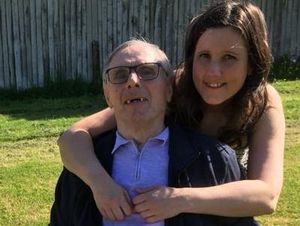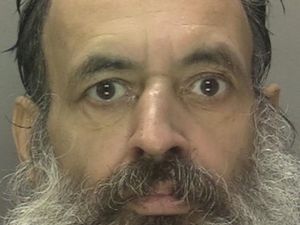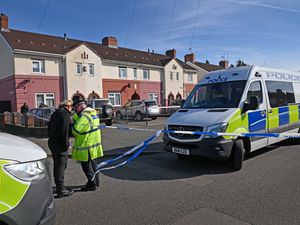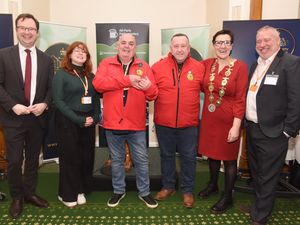Wolverhampton pre-school teacher who 'battled relentlessly' to get her father’s rare condition correctly diagnosed backs campaign for better care
A Wolverhampton pre-school teacher who “battled relentlessly” to get her father’s rare neurological condition correctly diagnosed has called for the creation of a new task force to lobby for better care.

Eight years ago, David Pearson was told he had vascular dementia but his daughter Lavinia Pearson challenged the diagnosis.
She says he was only given the correct diagnosis of progressive supranuclear palsy – a rare neurological condition which worsens over time – thanks to her persistence.
Lavinia, who was also a special police constable, is now supporting The Neurological Alliance’s call to urge the government to establish a Neuro Task Force.
Previously, his wife Diana had been diagnosed with Parkinsonism before diagnosis of a rare neurological condition corticobasal degeneration (CBD) in the last six months of her life.
Shortly after Diana died at the age of 77, Lavinia insisted on an appointment with a consultant for her father as he began to display similar symptoms.
She said: “Unfortunately, the consultant laughed in my face and said it was dementia, he was 90 per cent sure it was nothing to do with Parkinson’s.
"I told him that he still had 10 per cent to play with and refused to leave the office until he ordered a scan to have a look at dads’ dopamine.”
Within a week, David received the diagnosis of progressive supranuclear palsy, which affects how the brain controls body movement, coordination, thinking and other vital functions.
Lavinia added: “Now dad can’t do anything for himself; he can’t move his arms, walk or even talk.
"He knows what he wants to say but can’t get it out if he needs to think about it.”
Lavinia, 44, cares full time for her 80-year-old father but feels as though she let her parents down.
She said: “I feel like I should have known more about the conditions. I was completely oblivious with mum; I feel like I missed things and just trusted all the medical professionals.
"We didn’t have any other support so now with my dad, I’m like a dog with a bone, I’m relentless. I fight for him.”
She is now supporting The Neurological Alliance campaign to bring about change for people affected by neurological conditions and believes there should be more specialist support put in place for people like her father.
She said: “When dad’s used to go to dementia day care it gave us both a bit of a rest, but he just stood out like a sore thumb because he doesn’t have dementia. I don’t think they understood what he was going through and how to care for him properly.”
The Neurological Alliance handed over a 19,000-strong petition to the Department of Health and Social Care on June 5.
It called on the government to back the one in six people affected by neurological conditions in the UK and establish a UK-wide Neuro Taskforce to spearhead vital improvements in care and support.
The petition was a result of The Neurological Alliance’s 2022 ‘My Neuro Survey’ completed by more than 8,500 people affected by neurological conditions.
It exposed significant shortfalls in mental wellbeing support, delays to accessing vital treatment and care and a lack of information and support at diagnosis.
Georgina Carr, chief executive of The Neurological Alliance, said: “Despite affecting millions of people and costing billions of pounds, neurological conditions are too often at the back of the queue.
"More than half of people who shared their experiences had experienced delays to routine specialist appointments in the last year and a majority hadn’t been asked about their mental wellbeing by a healthcare professional in the past three years.
"We believe these people are the neglected millions. The message from people affected by neurological conditions is clear – this must change.”
The Neurological Alliance is a coalition of more than 90 organisations working together to improve services for people who live with a neurological condition.





